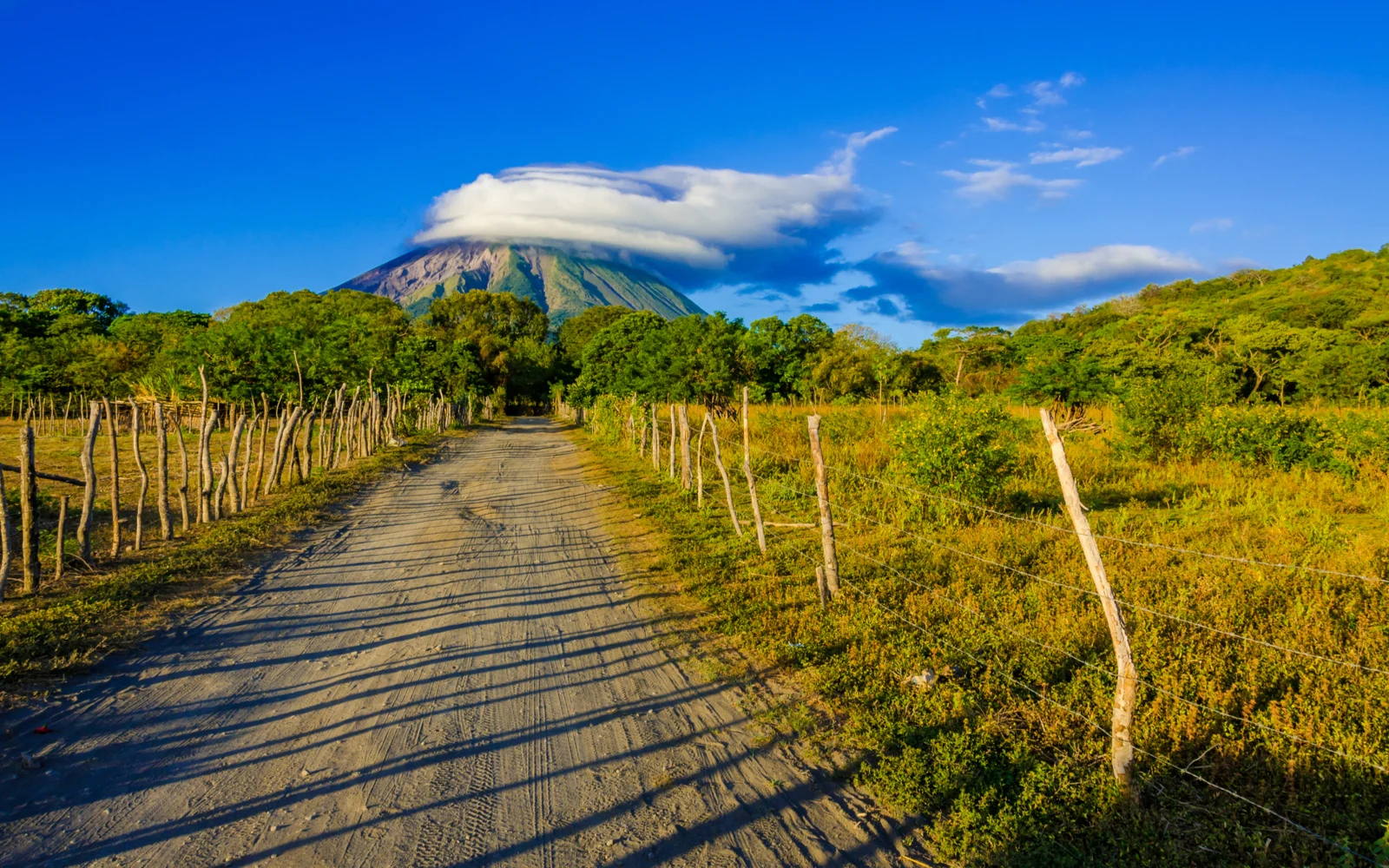Is Nicaragua safe to visit?
Nicaragua can be visited, but travelers should exercise caution due to the country’s high crime rate and ongoing political unrest. General crime, including pickpocketing, robbery, and petty theft, is a primary concern for visitors, and travelers should also be mindful of the political situation and natural disaster risks in the country.
The Central American country of Nicaragua is slowly getting on the radar of more travelers, especially backpackers in search of adventure. During its peak tourism numbers, the country received nearly two million visitors.
The beautiful nature is one of the primary draws for visitors to Nicaragua, such as the volcanic jungle island of Ometepe Island. On the beautiful coast, surfers and beach enthusiasts flock to San Juan del Sur. Nicaragua also has many well-preserved towns with colorful facades and historic architecture, such as Granada and Leon.
With these beautiful sights and many activities such as hiking, kayaking, and even volcano boarding, it’s clear why Nicaragua is a backpacker’s paradise. However, any paradise can be spoiled by problems such as poor safety.
Is Nicaragua safe to visit, or should you stay away? Keep reading this travel guide with all the information you need to plan your visit.
Is Nicaragua Safe to Visit in 2024?
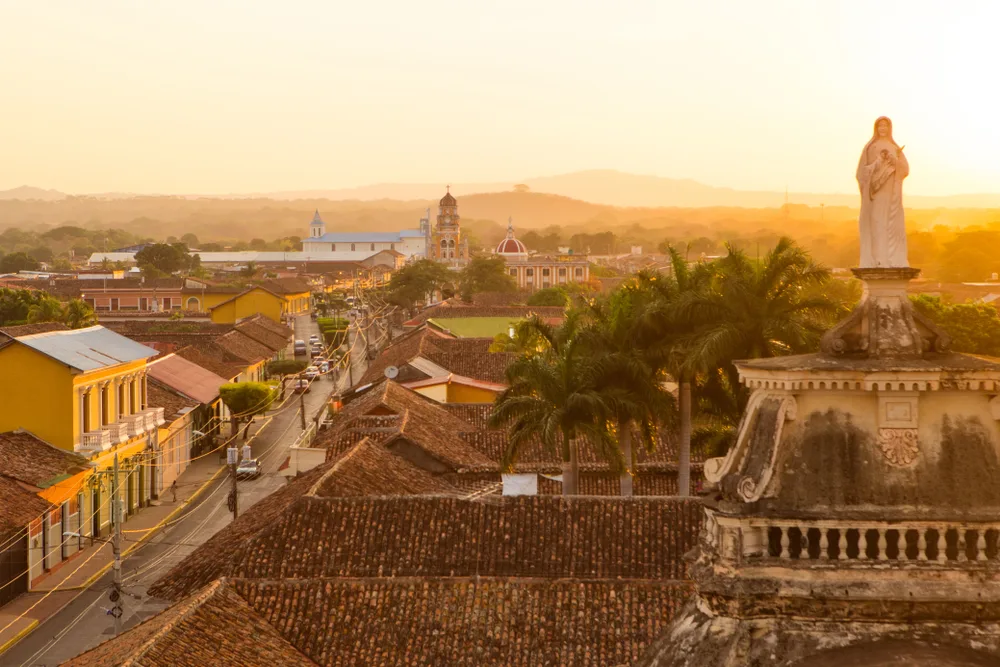
Elena Simona Craciun/Shutterstock
Yes and no. Visiting Nicaragua is possible, but it’s crucial to exercise caution due to the country’s high crime rate and ongoing political unrest. While these issues may not directly impact tourists, it’s important to stay vigilant and avoid potentially risky situations or areas.
General crime is definitely the primary concern for people visiting Nicaragua. It is also the primary reason that governments such as Australia cite in their travel advisories telling people to exercise increased caution when visiting Nicaragua.
Common crimes include:
- Pickpocketing
- Bag snatching
- Robbery
- Armed robbery
- Mugging
- Express kidnapping
- Assault
- Gang violence
- Sexual assault
As you can see, the list of crimes that you might encounter in Nicaragua is fairly long. Although most criminal incidents affect locals, not tourists, many visitors have been victims of crime in Nicaragua as well.
Besides crime, Nicaragua also suffers from an unstable political situation and frequent civil unrest.
This civil unrest is the primary reason why some governments, including the United States, caution their citizens to avoid non-essential travel to Nicaragua. Nicaragua has experienced a rapid drop in safety over the past few years.
In 2023, it was just #123 on the Global Peace Index’s list of safest countries. Its high homicide rate, high rate of incarceration, and political instability played the biggest roles in decreasing the country’s stability rating.
To understand why the situation in Nicaragua has deteriorated so rapidly, it’s important to know a little bit about the political situation there.
From 2018 to 2022, there were frequent bouts of civil unrest in the country, kicked off by protests in 2018 against poor government handling of forest fires and proposed cuts to pension benefits. In the initial demonstrations, 280 people were killed.
Protests continued for several years afterwards as people are more and more dissatisfied with long-term president Daniel Ortega.
Ortega has been sanctioned by international human rights groups for brutally cracking down on dissidents and is unpopular among his people who see him as betraying his revolutionary past.
All these factors combined with the legacy of the Nicaraguan Revolution means that politics in the country is risky business, and as a visitor, you should stay out of it as much as possible.
Avoid any demonstrations as they can and do turn violent. Avoid criticizing the president or making remarks on politics as people, including foreigners, are often targeted by the authorities for perceived anti-government sentiment.
Finally, you should be mindful of natural disaster risks when you are in Nicaragua. Nicaragua is on the Caribbean Sea and its coastal regions frequently get hit by hurricanes during hurricane season, which lasts from June to November.
Make sure that you don’t time your beach vacation to be during hurricane season. Nicaragua has several active volcanoes. These are popular sightseeing destinations but remember that the safety situation could change at any moment.
The UK government advises citizens to always check local news and government alerts to see if there is news of an eruption, and never go hiking on a volcano without a local guide.
Ready to Book?
Unlock Exclusive Discounts on Expedia.com!
Got Travel Insurance?
Protect yourself for unexpected interruptions.
Compare Plans We may be compensated when you book after clicking on one of our links.Crime in Nicaragua
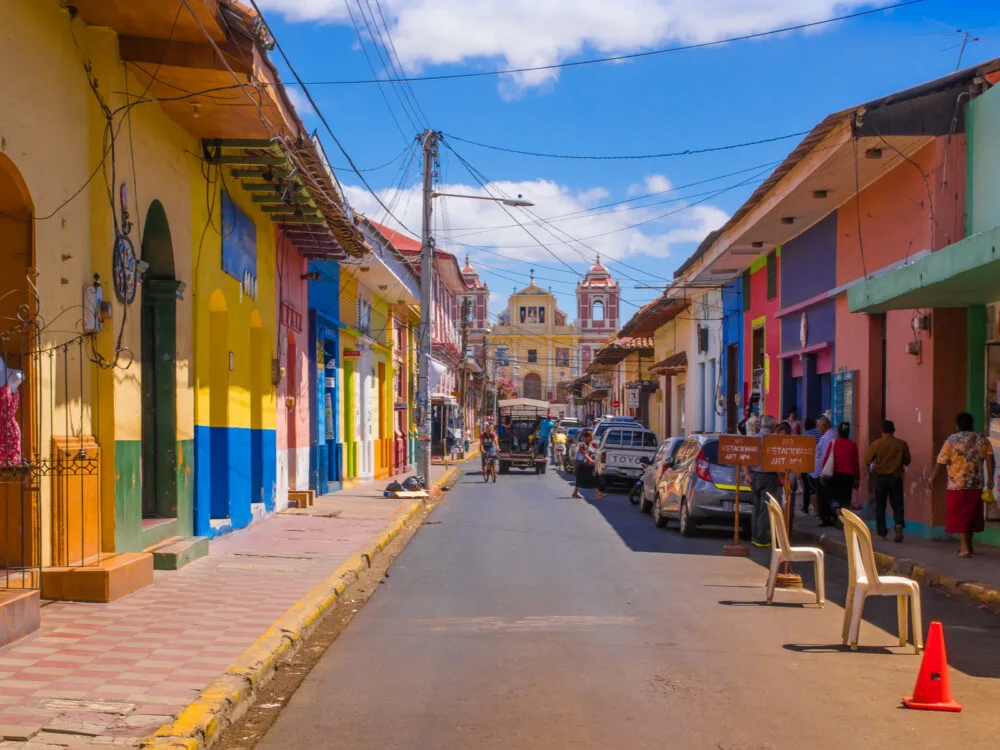
Fotos593/Shutterstock
Many people are afraid to visit Nicaragua because of the crime situation. Like many Central American countries, Nicaragua has a high crime rate.
Tourists and expats have been victims of crimes in the past, such as the homicide of a Canadian resident of Nicaragua during a burglary gone wrong in 2015. However, what is the reality of crime in Nicaragua?
These statistics may help put your mind at ease. Nicaragua actually has one of the lowest homicide rates in the Latin American and Caribbean regions — lower than some more popular tourist destinations such as Jamaica and Costa Rica.
Its homicide rate rose slightly in 2021, to 11 incidents per 100,000 people, and the homicide rate is higher than the global average, but the country is still a regional leader in fighting homicides.
There are a few reasons why Nicaragua has a relatively low homicide rate. Some attribute the low murder rate to good social policies, others to the different makeup of street gangs compared to neighboring El Salvador.
Whatever the reasons, a trip to Nicaragua is probably safer than a trip to many of its neighbors.
Like many Central American countries, Nicaragua has a problem with organized crime. According to the Organized Crime Index, it ranks #40 in the world’s countries in terms of organized crime.
Crime groups tend to be mafia-style organizations that are involved in crimes such as human trafficking and the cocaine trade, and pro-government paramilitary groups.
However, there are no Mara-style street gangs that are notorious in other Central American countries such as El Salvador. The crime rates for most crimes, from petty theft to robbery, are still high, and organized gang violence affects the lives of many.
Crime has also increased in the past few years due to the political instability in the country from 2018 to 2022. Visitors to Nicaragua definitely need to take precautions and stick to safe areas.
However, as long as you stick to areas where there are plenty of other tourists and you have plenty of street smarts, you can make it through Nicaragua and have a pleasant vacation.
Petty Theft
Don’t let your concern about headline-grabbing violent crime distract you from taking precautions against the crime that is most likely to affect you as a tourist, which is petty theft.
According to the Australian government, petty crime such as pickpocketing and bag snatching is a risk when traveling to Nicaragua.
Petty theft is most common in the capital city, Managua, which is part of the reason why many tourists skip the busy, often-dangerous capital when visiting Nicaragua.
Thefts can also happen in other parts of Nicaragua, such as:
- Leon
- Ciudad Sandino
- Pacific Coast beaches
- Ometepe Island
Thieves often target tourists because they know that visitors are more lucrative targets than locals (Nicaragua is one of the poorest countries in the Western Hemisphere).
Make sure that you don’t stick out even further by flashing expensive cameras, watches, or jewelry. You also don’t want to carry around lots of cash. You must take precautions to protect your valuables in Nicaragua.
Never, ever leave your bag unattended as thefts of opportunity can happen in a second. Put valuables in a secure place such as a cross-body bag, zipped backpack compartment that is not the outside pocket, or your front pocket.
You want to make it as hard as possible for thieves to get at your things. You should also be careful of common tourist scams. Some people will pose as tour guides, especially in popular tourist locations such as Ometepe Island.
Always book a tour ahead of time and verify the identity of the person you go with as thieves and scammers often pose as tour guides.
Also be careful when booking activities, especially ATV rentals, as the tour companies are sometimes disreputable or charge hidden fees. Do your research ahead of time.
Armed Robbery
Tourists in Nicaragua can be victims of more violent crimes. The most common violent crime affecting tourists is armed robbery. The UK government warns tourists about the possibility of robberies in its travel advisory for Nicaragua.
Ominously, it warns travelers not to resist if they are victims of armed robberies as people, including tourists, have been killed that way in the past.
Illegal taxis are common locations of robberies and other violent crimes such as express kidnappings, when a robber forces a victim to drain their ATM. When taking a taxi, make sure that you are taking a legalized taxi, which you can spot by their red plates.
Most taxis in Nicaragua are shared but arrange with your driver to not pick up other passengers for safety. Robberies increase after dark, so be very careful with your movements.
Don’t walk in unsafe areas of town at night. Don’t travel throughout the country at night as highway robberies targeting buses and tourist vehicles are common.
However, the Canadian government offers an important caveat for violent crime in Nicaragua. Most violent crimes are motivated by politics or organized crime and rarely target tourists. Keep that in mind to help alleviate your worries.
Avoiding Bad Areas
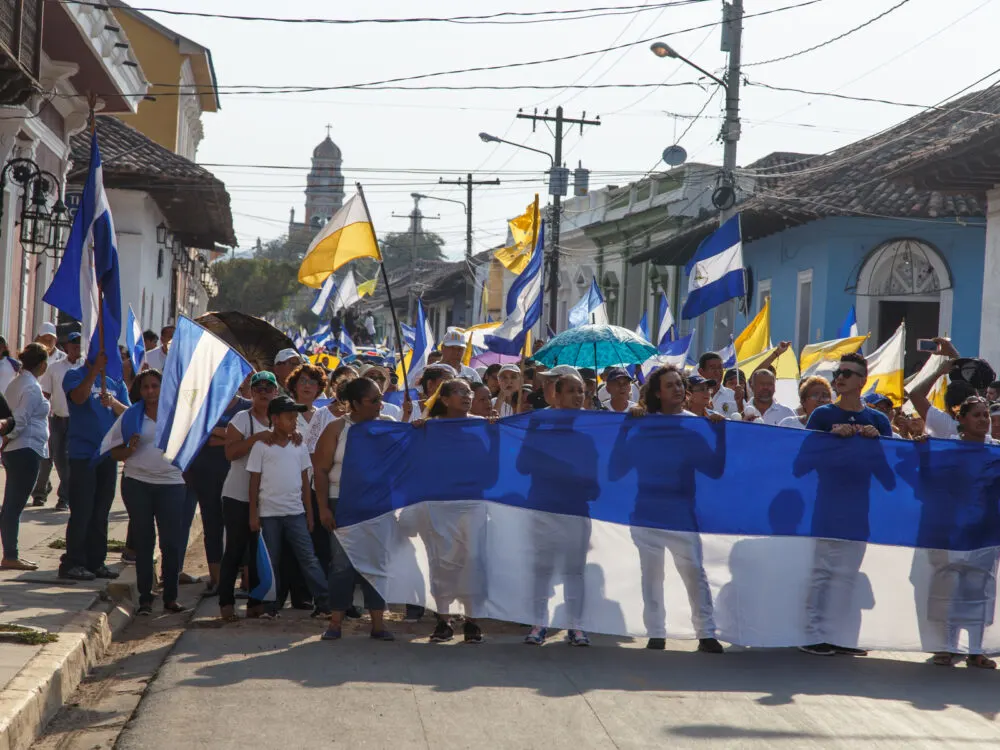
Granada, Nicaragua – May 29, 2018: peaceful protests in Granada Nicaragua for reform of INSS, people flying the Nicaraguan flag/Riderfoot/Shutterstock
Nicaragua has a lot of areas with drastically higher crime rates than the rest of the country. As a visitor, you would be smart to avoid them. The capital, Managua, has many neighborhoods that are fairly dangerous.
These areas include:
- Avenida Bolivar
- Altamira
- Rene Schick
- Jorge Dimitrov
- Zona Rosa
In more remote areas, the government is not able to control its territory as much. For example, there is barely any police presence in the North Caribbean Autonomous Region, which has a high rate of organized crime and drug trafficking.
Getting off the beaten path is not the best thing to do in Nicaragua. Stick to popular tourist areas where you know that safety standards are higher.
Frequently Asked Questions
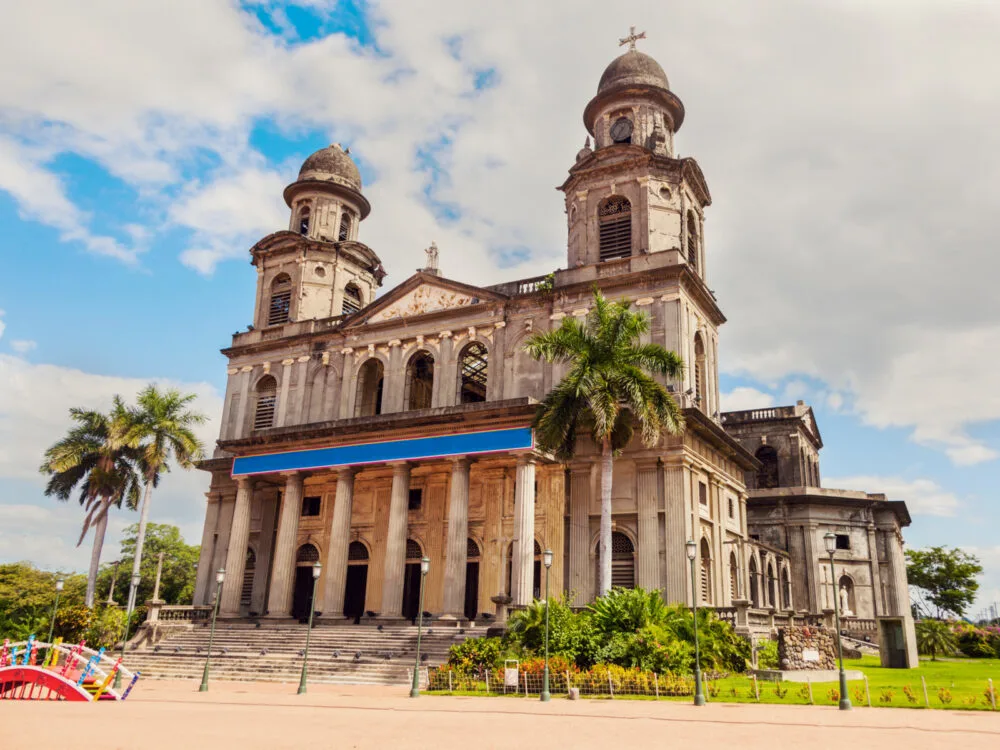
Henryk Sadura/Shutterstock
Here are a few additional questions that you may want answered before heading to Nicaragua:
How safe is vacationing in Nicaragua?
You should definitely have some caution in mind as you vacation in Nicaragua. However, Nicaragua is one of the safer countries in Central America for a vacation and coastal towns tend to have less violent crime.
Is Costa Rica or Nicaragua safer?
According to crime statistics, Nicaragua is safer due to its lower crime rate. However, Costa Rica has a lower risk of civil unrest or political upheaval. However, Costa Rica may feel safer because there are more tourists around and the tourist infrastructure is better.
Is Nicaragua safe in 2023?
Nicaragua is probably safer in 2023 than in many recent years since the civil unrest has calmed down a lot. However, the civil unrest has “calmed down” in large part due to government suppression.
Is Nicaragua as good as Costa Rica?
In terms of nature and beautiful landscapes, Nicaragua is as good as Costa Rica. However, the infrastructure is much better in Costa Rica and you may find more creature comforts there.
Is Nicaragua cheap or expensive?
Nicaragua is very affordable to visit! It is actually one of the cheapest countries in the region, making it very popular with backpackers.
So, Should You Visit Nicaragua
Is Nicaragua safe? As we’ve shown you above, the country can be a challenge to visit for inexperienced travelers due to the high rate of crime and the potential for civil unrest. However, thousands of people visit each year and have a wonderful time.
You can be one of them as long as you avoid risky behaviors such as walking alone at night and do your research on safe areas ahead of time.



